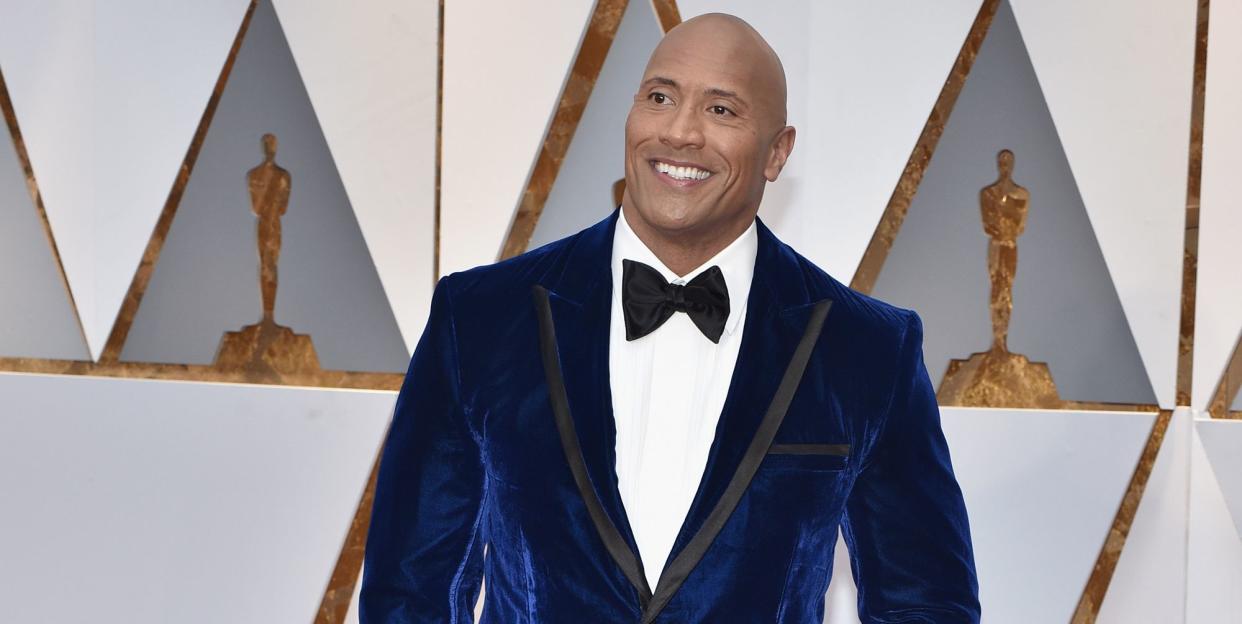According to The Rock, That 'Generation Snowflake' Interview Was '100 Percent Fabricated'

Dwayne "The Rock" Johnson made headlines earlier this week when a purported interview with the star found him departing from his signature brand of sunny, politically neutral optimism and instead spouting right-wing talking points. An article in the British tabloid The Daily Star quoted Johnson griping that members of "generation snowflake" are "looking for a reason to be offended." But according to Johnson, not only are the quotes untrue, he never even gave the publication an interview.
In a video he posted to Instagram, the action star refuted the story entirely. "The interview never took place, never happened, never said any of those words. Completely untrue. 100 percent fabricated," said Johnson. The article, which was titled "The Rock Smacks Down Snowflakes," no longer appears to be online.
A post shared by therock (@therock) on Jan 11, 2019 at 3:12pm PST
The bogus story is far from the first fake celebrity interview. Last month, the Financial Times-owned publication Agenda was forced to retract an interview with disgraced CBS executive Les Moonves after Moonves denied ever speaking to the publication. And a supposed conversation with Drew Barrymore that appeared in EgyptAir’s in-flight magazine went viral last fall for looking suspiciously like a poorly-executed fake. "I cannot deny that women made a great achievement over the past century," the publication quoted Barrymore as saying. "There is significant progress recorded by people who study women status throughout history." Though the writer stood by the piece, the actress’s spokesperson told HuffPost that Barrymore "did not participate" in the interview.
While The Rock's non-interview is far from the first tabloid ethics scandal, reportorial standards can vary from publication to publication. "We had to do solid investigative reporting to get our stories," said Marlise Kast, who wrote a memoir, Tabloid Prodigy, about her time as a celebrity reporter for Globe magazine in 1990s. "We had to have three sources on every story, we had to have our sources take lie detector tests." Though Kast wasn’t aware of instances of writers fabricating stories, she recalled occasions in which colleagues went "way too far." In one, the publication wrote a story based on an illegally tapped phone call between then-couple Tom Cruise and Nicole Kidman.

Stories were also killed based on the personal allegiances of Globe publisher David Pecker. "If he was friends with someone, we couldn’t touch that person," said Kast. One such friend was President Donald Trump, and Pecker's company admitted to collaborating with the Trump campaign to "catch and kill" a damaging story from Playboy Model Karen McDougal, with whom Trump allegedly had an extra marital affair.
In his Instagram video, The Rock offered some tips for spotting an interview of his that's the genuine article. "You know it's not a real DJ interview if I'm ever insulting a group, a generation, or anyone," said Johnson, "because that's not me."
('You Might Also Like',)

